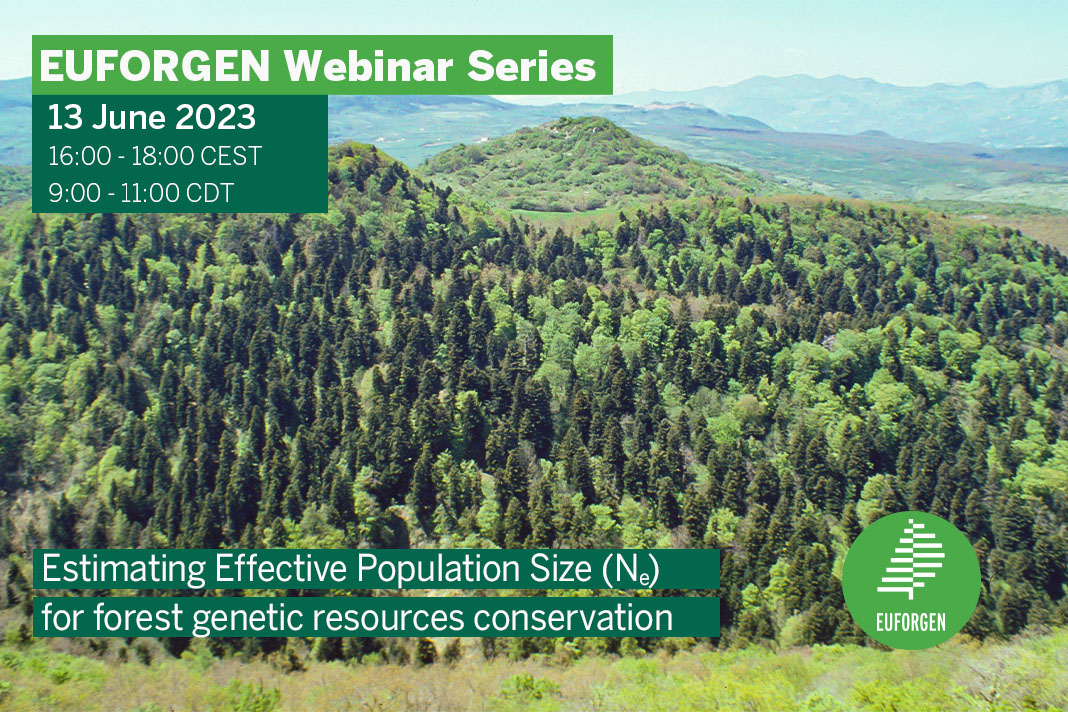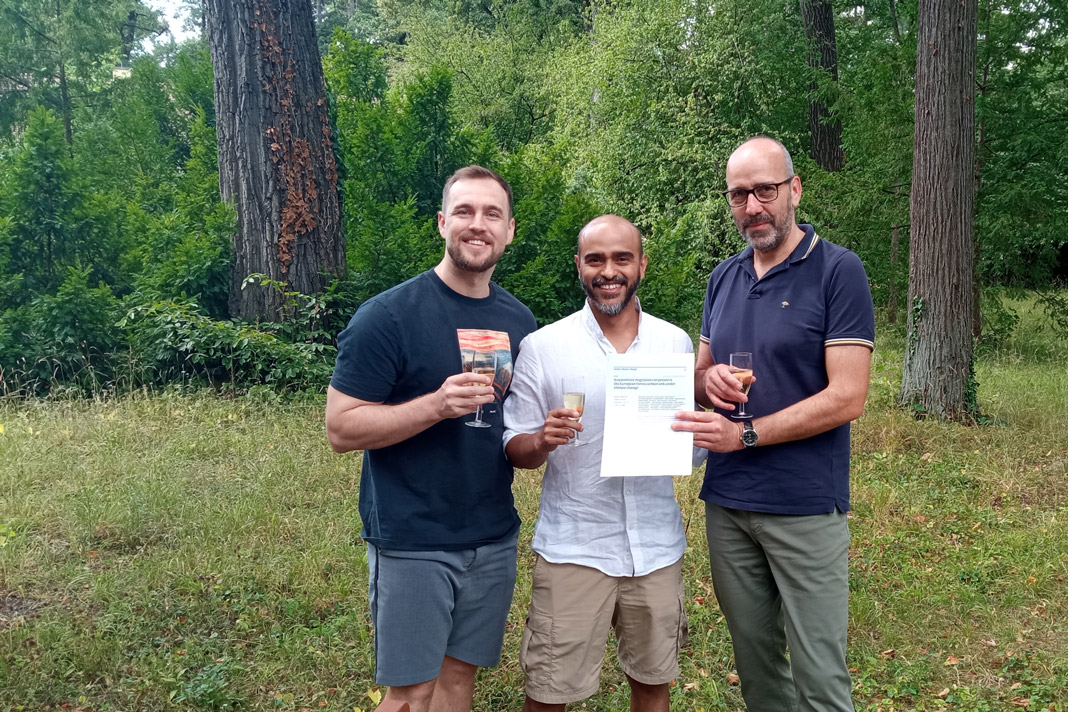New EUFORGEN Webinar: Estimating Effective Population Size (Ne) for forest genetic resources conservation
The event will take place on 13 June 2023, from 16:00 to 18:00 CEST. Registration is closed. The recording of the webinar is available here.
EUFORGEN presents a new webinar series where key topics in forest genetic resources (FGR) are open for public debate. Leading experts provide their scientific arguments on a given subject, and they might not always agree! What do you think? Join the debate and share your views!
Webinar 1: Estimating Effective Population Size (Ne) for FGR conservation
FGR are a critical component of forest ecosystems, contributing to the adaptability and resilience of forests to environmental change. Effective population size (Ne) is a fundamental parameter in population genetics, reflecting the genetic diversity of a population. Ne plays a critical role in the FGR conservation, as it determines the ability of populations to adapt to environmental changes and to respond to selection pressures. Therefore, it is crucial to estimate Ne accurately to effectively conserve FGR.
This webinar will bring together researchers working on estimating effective population size for FGR conservation to present their views and suggest methods on how to effectively estimate Ne and if it can be used as an indicator.
Presenters
- Juan Jose Robledo-Arnuncio, INIA, Spain
- Sean Hoban, The Morton Arboretum, USA
- Bruno Fady, INRAE, France
Followed by a panel discussion
Presentation titles and bios
1. Effective Population Size in FGR conservation, some theoretical and practical considerations (Juan Jose Robledo-Arnuncio, ICIFOR-INIA, CSIC, Spain)
Juan J. Robledo-Arnuncio is a Research Scientist at Spain’s Institute of Forest Sciences (ICIFOR-INIA, CSIC). He is a population geneticist studying demographic and evolutionary processes affecting tree populations. His research focuses on the interaction between gene flow and local adaptation in forest trees, combining quantitative and molecular approaches, and on the development of new statistical methods to infer contemporary migration and selective processes in non-equilibrium plant populations.
2. Conserving genetic diversity of species without DNA data - imperfect but useful indicators (Sean Hoban, The Morton Arboretum, USA)
Sean Hoban is a Tree Conservation Biologist at The Morton Arboretum in Chicago USA. Sean also has a leading role in the IUCN Conservation Genetic Specialist Group, GEO BON, and the Coalition for Conservation Genetics. He has a PhD from University of Notre Dame, and performed a postdoc with the ConGRESS project and another postdoc at NIMBioS. He has more than 80 publications and currently focuses on developing science-based advice for ex situ collections like botanic gardens, and for bringing knowledge on adaptive capacity of populations to national and global policy. He also has interests in seed dispersal, macrogenetics, hybridization, and population size change over time. You can read more about his group at hobanlab.com.
3. The limits of Effective Population Size as a practical and operational indicator of genetic diversity trends in forest trees (Bruno Fady, INRAE, France)
Bruno Fady is a geneticist with an ecology background and a 30-year experience in Mediterranean forest ecosystems. He holds a BSc degree in Plant physiology and cellular biology (Université Pierre et Marie Curie, Paris, France) and a Masters and PhD in Ecology (Aix-Marseille Université, France). Bruno Fady is a senior scientist and the director of the multidisciplinary Ecology of Mediterranean Forests research laboratory (INRA-URFM) in Avignon, France. He is interested in many fields related to forest genetics and ecology, from breeding to conservation, and has published over 100 articles and book chapters. Currently, he is focusing on how genetic diversity is structured at broad and fine geographic scales in relation to natural ecological factors and human impacts in Mediterranean tree species. He coordinated the H2020 project GenTree which aimed at optimizing the management and sustainable use of forest genetic resources in Europe.
Registration is closed.
The recording of the webinar is available on EUFORGEN YouTube's channel.







